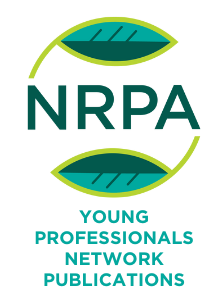
When I say the word “power” what’s the first thing you think about? Maybe a successful television show made by 50 Cent? Or superheroes of the Mighty Morphin’ nature? Or maybe, you think about the power you hold as an individual in your personal, professional and academic life?
Power is, by definition, a force through which parties in a relationship can influence one another’s behaviors, and despite what we may think about power, it is neither inherently good nor bad. However, I bet any of you reading this post today can recall more times when power felt negative, misbalanced or maybe even abusive. The concept of power might excite you or it might terrify you. It might even seem foreign to you if you’ve never had a taste of it, but I’m here to let you know — power is for everyone.
To have true power in this new age, one should recognize that “power” is a socially created construct. As our dear friend Lord Acton once wrote, “Power tends to corrupt and absolute power corrupts absolutely.” The concept of power isn’t something you can own and it’s not exclusive to one specific generation or level of authority — it is something that everyone can shape, share and utilize for the benefit of all, especially if they know how. Studies from countless scholars have identified five main types of power — referent, legitimate, expert, reward and coercive.
Types of Power
Referent power comes when people hold you in high regard, they trust you and look to you in times of need. Legitimate power is power that is given based on title or position. Expert power comes from your direct knowledge and skills from years of experience. Reward-based power is held by individuals who use reward systems (awards, promotions, raises, etc.) to maintain their power and motivate their staff. Finally, Coercive power is when you use your authority to demand that people follow your orders — think of it like corporate bullying.
When looking at these styles, you may recognize them from experiences in your own life and see the pros and cons of each of them. Except for coercive power, there is room for all types of power at the table. There is a time and place when a well-timed reward could be the final push through a plateau problem at work. There is a need for expert power to build strong, educated teams. And of course, having a referent leader is something we all probably aspire to be — inspiring change and hard work simply through the relationships we build and the trust we’ve cultivated.
Sharing the Power
Recall a time when you noticed that power was abusive — maybe you had a boss that micromanaged or made you feel less than; maybe you had a teacher that belittled your learning. In any example, there is usually one person who is emboldened by a system that allows them to act so negatively. To break the cycle of abusive and negative power, we must understand how to combat it — we need to find ways to share power. By utilizing empathy, strong communication and active listening we can start to understand what others’ needs are, which is the foundation for creating shared understanding, and thus, shared power.
To be a manager, especially in and of the new generation, we must understand that power doesn’t just have to be black and white. There is a time and place for most types of power — so to be a good manager, you should understand that it’s okay to flow between them and it’s okay to share the power with others. One fact I like to remember constantly as a manager and wisdom that I impart to my staff is, “You cannot be everything for everyone, nor should you want to.”
I believe that to truly harvest power, you must understand that you cannot hold it alone. Looking at holistic management and wellness principles, it is imperative for us as leaders — whether current or future — to understand that power must be shared. It is important to remember that we’re all in this together, and as I often say, “Nothing blooms year-round”. Nothing can be at its best all the time — including people.
Managers who understand power distribution and shared value understand that the greatest resource one can have is a strong team around them. To build up a team of strong, powerful leaders you must be willing to share your expertise, share your opportunities and take accountability for your shortcomings. Some of my favorite leaders of all time were not reverent figureheads, holier than thou and so untouchable they seemed fictitious — no, they were people who saw an opportunity to make a difference and did everything in their power to help.
So, whether you’re a seasoned vet in this business or a newcomer looking for ways to make a difference, I encourage you to find the power systems in your organization and challenge them, elevate them and be a part of them. To build a stronger generation, we need to be stronger advocates, supporters and leaders. It is our collective responsibility to have a hand in shaping the distribution of power by having the insight and courage to challenge abuses whenever we see them.
Miranda Maloy (she/her) is a program supervisor for City of Lewisville Parks & Recreation.
This blog post was written in partnership with the NRPA Young Professionals Network (YPN). Learn more about the NRPA YPN on NRPA Connect or on the YPN Facebook group.


